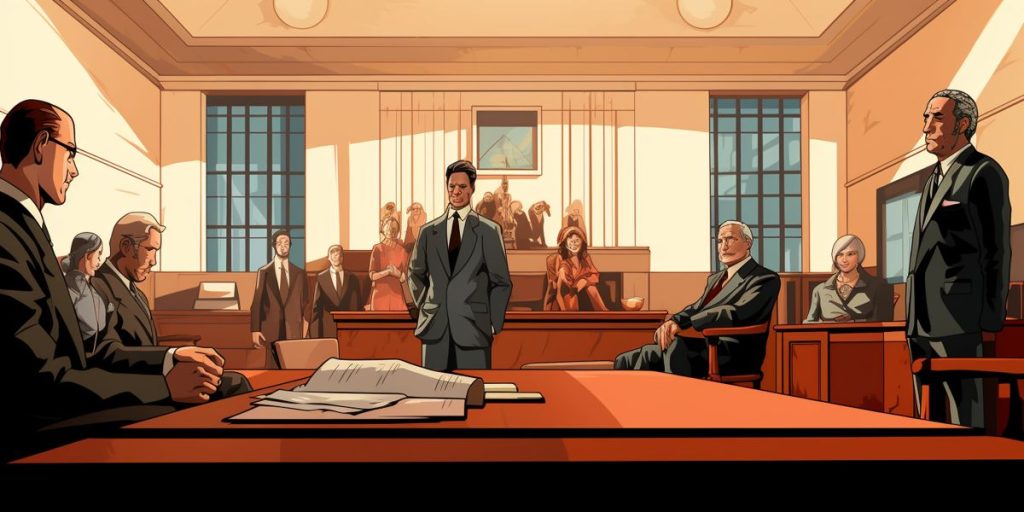Recent developments in the Thanasis Nicolaou case involve the handling of his exhumed remains, as the court examines procedural anomalies. Nicolaou’s death was initially ruled a suicide, but the delayed return of his hyoid bone and absence of key figures in the proceedings have fueled doubts and highlighted the need for further scrutiny in the unfolding trial.
What are the recent developments in the Thanasis Nicolaou court case?
Recent developments in the Thanasis Nicolaou case involve the handling of his exhumed remains, as the court examines procedural anomalies. Nicolaou’s death was initially ruled a suicide, but the delayed return of his hyoid bone and absence of key figures in the proceedings have fueled doubts and highlighted the need for further scrutiny in the unfolding trial.
Developments in the Courtroom
The case surrounding the mysterious death of Thanasis Nicolaou took another turn in court this Monday. The unfolding trial has captured public attention, particularly following recent developments involving the handling of Nicolaou’s exhumed remains. The national guardsman’s death in 2005 was hastily categorized as a suicide, but doubts linger, fueled by his family’s insistence that foul play was involved.
Testimonies in the court revealed procedural anomalies. The police officer tasked with transporting Nicolaou’s hyoid bone to Greece for analysis divulged that the return of the remains did not comply with the prescribed guidelines. They were kept for nine days instead of the mandated three, raising concerns about potential tampering. The officer, acting under instructions from senior police officials, maintained that all her actions were transparent and known to the assistant chief of police and attorney general’s office.
Legal Complications and Testimonies
The absence of Panicos Stavrianos, the Cypriot pathologist originally assigned to the case, marked a noteworthy gap in the proceedings. His initial examination led to the suicide ruling—a conclusion now under scrutiny. The trial’s progress was further complicated by the illness of one Nicolaou family lawyer and the request for the testimony of a Greek medical expert, leading to an abrupt adjournment.
The court also grappled with jurisdictional issues. A Greek lawyer’s involvement sparked a brief pause in the proceedings, highlighting the complexity of legal practices across borders. This international dimension underscores the gravity and reach of the case, extending beyond Cypriot confines.
Upcoming Witnesses and Examination
Looking ahead, the court anticipates the input of key figures, including Emmanuel Agapitou, the coroner who kept several bone samples in Greece. With the request for Andreas Marnerides’ testimony rejected, the focus shifts to the upcoming deposition of Eleftheria Charilaou, the anthropologist who studied Nicolaou’s remains post-exhumation.
Further insights are expected as the trial progresses, with Stavrianos poised to be questioned in late December. His previous assessment will be placed under the microscope, potentially unraveling the narrative that has stood for over a decade. As the court convenes next Thursday, observers await Charilaou’s findings, which may cast light on the shadows surrounding the guardsman’s untimely demise.
Echoes of the Past, Questions of the Present
Thanasis Nicolaou’s body was discovered under a ditch in 2005, leading to swift conclusions that many now question. The soldier’s family remains steadfast in their belief that the official suicide ruling masks a darker truth. The court’s diligent examination of the case, along with the handling of Nicolaou’s remains, ensures that the search for justice continues unabated, offering a glimmer of hope to those seeking closure in this enduring mystery.
What are the recent developments in the Thanasis Nicolaou court case?
Recent developments in the Thanasis Nicolaou case involve the handling of his exhumed remains, as the court examines procedural anomalies. Nicolaou’s death was initially ruled a suicide, but the delayed return of his hyoid bone and absence of key figures in the proceedings have fueled doubts and highlighted the need for further scrutiny in the unfolding trial.
What procedural anomalies have been revealed in the court?
Testimonies in the court revealed procedural anomalies in the handling of Thanasis Nicolaou’s remains. The police officer responsible for transporting his hyoid bone to Greece for analysis admitted that the return of the remains did not comply with the prescribed guidelines. The remains were kept for nine days instead of the mandated three, raising concerns about potential tampering.
Who are the key figures involved in the trial?
The trial has seen the absence of key figures, including Panicos Stavrianos, the Cypriot pathologist who originally ruled Nicolaou’s death as a suicide. His examination is now under scrutiny. Additionally, the illness of one of the Nicolaou family lawyers and the request for a Greek medical expert’s testimony have complicated the trial’s progress.
What is expected in the upcoming proceedings?
The court anticipates the testimony of key figures, such as Emmanuel Agapitou, the coroner who kept bone samples in Greece, and Eleftheria Charilaou, the anthropologist who studied Nicolaou’s remains post-exhumation. The upcoming questioning of Panicos Stavrianos in late December may unravel the narrative that has stood for over a decade. The court convenes next Thursday to await Charilaou’s findings, which may shed light on the shadows surrounding Nicolaou’s death.

